We will now look at the woman, the man, and the great dual leap that every man must make alone to fully unite the two.
As the material individual, man is birthed from and into the realm of Earth-Woman-Becoming, but as spirit, as that part of eternity that is in all men, he stems from the realm of Sky-Man-Being. When born, man is attached to the great Mother, and this yearning and servitude of Woman will never cease unless man takes it upon himself to reach for the infinite, to become like his Father. Whether man chases after her pleasures like the aesthete, or like the merely ethical man seeks to fulfil his duties to the birth Woman gave him, he remains under her domain. In this realm, man’s love to woman takes the character of servitude, for even if he happens to be dominant in the material relationship, he only runs the errands of Woman as a power. He seeks her affirmation and the warmth of her embrace, for he thinks that it is Woman that has given him life, and by winning her, he wins life, for he gains a place in the great community of the Mother, and escapes death through his children and the continued existence of his people.
But Woman does not give man life, but death. For what can be more living than the undying Being? The individual life can only be a divergence from Being, from absolute life. Woman can only take and receive, and when Being, out of his great love, chose to strike the dark depth of the female womb with the thunderbolt of life and eternity, when Being took the task upon itself to be the core of the mere man, the only thing that Woman gave him was death. Death is what makes us different from our Being, death is the essence of our birth, of Nature and of Woman herself. To a man who has seen as much as a glimpse of the clear and terrible sky, Woman will reek of damp and foul death, of incompleteness and filth, and in him grows that holy scorn of woman. The greater a view he catches of the eternal, the more ridiculous and weak does Woman seem. Her body is broken and swollen with fat, permeated by that womb which is inseparable from her, which brought death upon man, and which throws her under the cyclical yoke of nature, constantly yearning to bind a man and give birth again. But he himself is straight, linear and strong, in the image of the great Father, and his member is only attached to him, as a tool which he can choose to ignore. This man will move towards the infinite, as he yearns to become wholly as his Father, and if he has the strength and will, he will make a movement of infinite resignation. He will want to leave the whole world of matter below him, every duty, meaning and joy Woman falsely gave him, so that he can be like his great Sky Father – unmovable and eternal like the heavens, terrible like the thunderbolt, but most of all, completely self-sufficient.
This is the infinite movement of the great and wise ascetic, who cuts all attachments to the world below him, and denies Woman his life-giving seed. And it is the infinite movement of the warrior, who does not fight for the bared breast of Woman, but who sails across the sea to never return, to die a beautiful death at the end of youth, washed ashore on unknown, golden banks. Self-sufficient in their will, these men of knowledge and action yearn to conquer that lost and divine land on the other side of the horizon, yearn to return to their real home.
These distant, mythical men of greatness are the clearest expression of the yearning towards Being, but the yearning sleeps within every man, and every man has felt some shred of that unmovable self-sufficiency. For most men have the ability to wholly devote themselves to their will, even if the power and the spiritual quality of this will differ from man to man. Even in the simple interest or hobby of a profane man this self-sufficiency is found in a trivial way, for man can in these activities reach that state where all his energies and focus lie on his creative or physical act, and he does not act because it leads to anything advantageous in the material world, but because the act is sufficient and all-encompassing in itself. Most interests men have are ‘meaningless’ in the world of Woman and matter, yet men, and especially young men, can be completely content in this almost tranquil act. Woman cannot truly reach this state, and she (and men who wholly serve her) may look with scorn upon these acts of men which lead nowhere, which bring no food to feed the great womb of Woman. Yet man in this moment does not need her approval. This of course does not mean that a profane interest is an infinite movement, but only illustrates the tendency that all men have felt, but which they must turn towards real infinity before they can turn back to complete the union with Woman.
So man is born into the realm of Woman, but yearns to the realm of Man, to become the great Being that is his true core. We should note that these two realms give two different definitions of masculinity: in the realm of Woman, a man is he who wins the favour of Woman, while in the realm of Man, a man is he who is unmovable and self-sufficient like Being itself. A man who takes the path of action towards Being, the holy warrior, will probably also win the favour of Woman, even if he denies her, and thus he is masculine in both realms. But the man who seeks Being by knowledge, that is by the reflective way, will probably be greatly disfavoured by Woman and the men who serve her, seeming weak, aloof, frail, or simply ‘unmasculine’. But we must see here that something greater can never come from something lesser, and that a man only defined by Woman and Nature, even if he is ever so mighty, will be no more than the part of Woman who happens to carry the seed.
Of course there are many frail and weak men, who would be rejected by Woman, and either escape this rejection by compensating with a pseudo-spiritual life, or try to win Woman by being ‘intellectuals’. These intellectuals will sweet-talk Woman, try to woo her by their ‘knowledge’ or ‘inspiration’, and earn a place in Nature by pushing through as soon as she swoons a little for his words. If this intellectual fails, he will be more ridiculous than if he had simply lived silently as an outcast of Nature; but if he succeeds, well, then he has succeeded, and he is as great as the ‘masculine’ man. For this is the truth of Nature and Woman, that she does not have an order or ideals, but that she is chaos, the mere sum of everything that manages to be born and exist. If the weak succeed over the strong, they are what is natural, and if the wicked and ugly succeed over the noble and beautiful, they are what is natural. To define ‘masculine’ by the realm of Woman leads to an empty definition, as the ‘masculine’ is only the sum of men who manage to exist, whatever their qualities may be. And so it is with every ideal one tries to create out of Nature: it will be empty, a mere spook which does not exist, and a fixed idea of the mind. Any such ideal is just waiting for the chaos of Woman to change her favour, and crush its empty husk. These ideals are surely not spiritual, as they are founded on Nature, and they, ironically, do not capture the essence of Nature either, as she is the opposite of any order and eternal value. It is foolish to define the ideal of man out of Nature and Woman, as this ideal, as all ideals, can only be created from above, with its root in the eternity that is Being, and in order for there to be such ideals and values, there must be men who strive towards the realm of Being, regardless of whether they are in the favour of Woman or not.
But one might still want to hang on to the fact that many men who take the reflective way to Being, the ascetics and, to a lesser extent, the artists and thinkers, are indeed sickly and detached from Nature in some way, for the creation of a man who both masters the active and the reflective is certainly uncommon. The man who is detached from Nature in some way or another, will of course be forced to take the reflective way, as action requires a close understanding of the matter acted upon, but this detachment can also be a positive quality to reach Being. For the active man always runs the risk of getting attached to the act and its consequences in the material world, forgetting that it in itself is worthless, and thus losing his movement towards the eternal. But the man who is detached from Nature will always feel that he is outside of it all, rejected by Woman, yet he still lives and wills, and thus he will be pushed further and further towards that which is the true core of his life and will, namely Being. He will turn his detachment from Becoming into a strong and sincere attachment to Being. We will know by his work and his words that he is sincerely making the infinite resignation of the world, that he is not that mere charlatan who speaks of the eternal to win a place in the temporary, or that Jew who turns to Jehovah so Jehovah can strike the enemies which he could not strike himself. For by his words and works we will be struck by awe and tremble, by the sublimity of eternity which no weakling can produce, and if we truly recognize Being, we will see that he is above us and is to be followed.
We have now talked about the movement away from Woman, towards the eternal, that man must make, but sooner or later, he will reach his limit. No man can become pure Being, as he as a man is bound by Becoming. Kierkegaard says in The Concept of Anxiety (1844) that the greatest moment of the genius is when he truly faces that which he cannot overcome, and totally collapses in on himself. Here, on the highest peak he could reach in his striving to become a man, at the top of the lonely white tower he has built, he must make the dual movement, the leap of faith which reaches both upwards to the hand the Sky Father has given him as salvation (or initiation), and downwards to the world of Woman he left behind, connecting them both. He cannot stay at the top of his tower, believing that he has reached infinity, that he is the Sky Father himself, when he looks down on the world from his puny tower. Firstly because infinity is always infinitely above his finite efforts, but secondly, and most importantly, because the Sky Father himself does not reside lonely in his realm of Man.
The great Father has chosen the absurd unity with Woman, to be born as something finite and incomplete again and again, to face death and chaos, and so must man do also, if he is to be a real man. He has made the infinite resignation, and now he must take the leap of faith which wins again everything he has sacrificed, but in the name of eternity. He must walk down to the valley and make his temporary life the work of Being, and he must love woman, not the force of Woman, but an actual, concrete woman. He must let the temporary meet the infinite in the absurd love of a single woman, in the love and dominion of her who is the complete opposite of the great and immovable sky he yearned to be in his youth, for if he truly is a man, he must love her. He must give her the seed, his great power and freedom, and birth yet another a generation of death and matter, and bind and sacrifice himself for these children which just repeat the absurdity of existence in an endless cycle; for this is the will of the Sky Father, when he gave his absurd love to the great Mother.
Kierkegaard never thought that he was capable of this leap, and that is why he chose to break his engagement with a girl named Regine, and live the rest of his life as a bachelor and outcast. And the sad and incomplete image of an old bachelor is exactly what awaits him who does not dare to make the final, absurd leap back to woman. This failure is the great folly of those spiritual questers, who only search to come as near Being as possible, and wish to be dissolved in its eternal life after death. But there is no such eternal life for a man, for he is not only Being but also Becoming, and he can only know the eternity of Being when he lives it in the temporary world of eternal death, just as the Sky Father chose to do, when he gave his love to the world of Woman.
To not dare or want to make the double leap, to ultimately fail one’s quest as a man, is what results in the celibate life of the monastery, but also in that peculiar fetish that may arise amongst great warriors, who could have any woman they wanted. Instead they choose to love the man they yearn to be, or make a pseudo-leap back to woman and love the effeminate young man. To equate this with the homosexuality of the mere sodomite would be ridiculous, for the sodomite exists only in the realm of Woman, but denies her to satisfy his own fetish, while the hero exists in the realm of Man above, but refuses to make the return. It is upsetting when those who exist only in the realm of Woman condemn the hero from below, by mere morality or the fact that he denies his seed to Woman. Instead one must realize that he develops this fetish because he will not take the final leap, and retake Woman in the name of eternity, a leap which the man who condemns from below can only dream of.
When man is young, he must reject everything that is the Mother and Woman, he must leave everything he calls home, to follow his own freedom and will, to sail across the sea toward his own Troy, whatever it might be. Here, at the golden banks of the noble city, is a world of only Man, of self-sufficient wrath and pointless death, of a great sacrifice of countless sons, without giving anything back to their Mother. But when man has spent his ten years in this glorious realm, he must return, make the frightening and difficult Odyssey back home. He must like Odysseus confront the sad ghost of Achilles, who in the end could only reach death and oblivion, even if he was the most powerful man at those shores, yet he must reject every promise of an escape from death in the eternal paradise of Kalypso. He must set foot again in the little place of the world that is his own, and retake that which he has left: to love woman again, not as a mere husband, but as an Olympian hero, who brings her the eternity and order she and her lands could never know by themselves. He will be the golden axis of his own part of the world, knowing that he has chosen death, just as God did that time he was born as a man. For recognizing that the world of Woman is the world of meaningless death, yet to give one’s whole life to it, is to repeat the great love of Eternity, and fulfil the great paradox of existence.
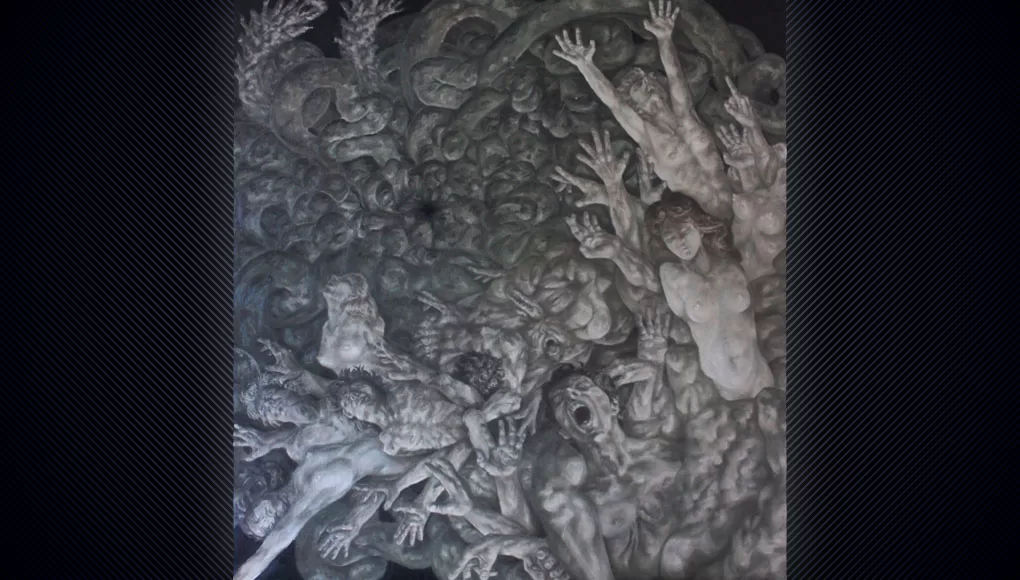


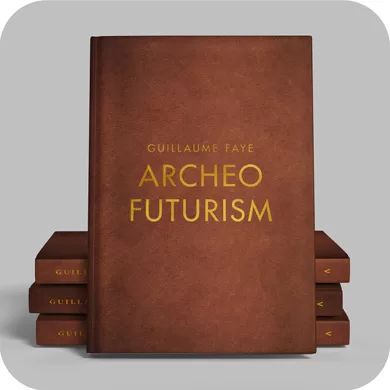

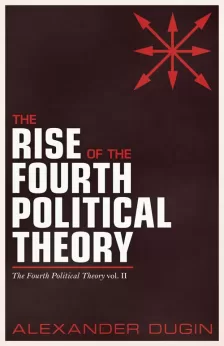


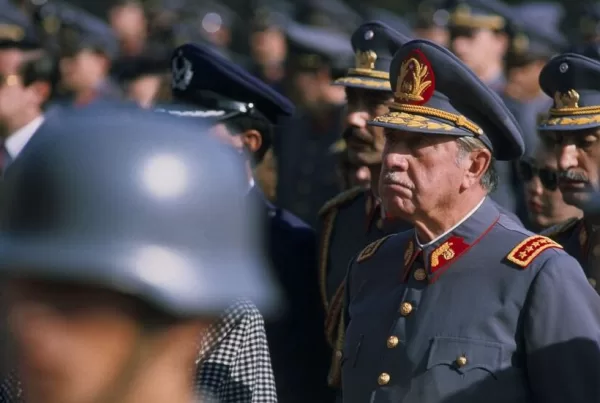
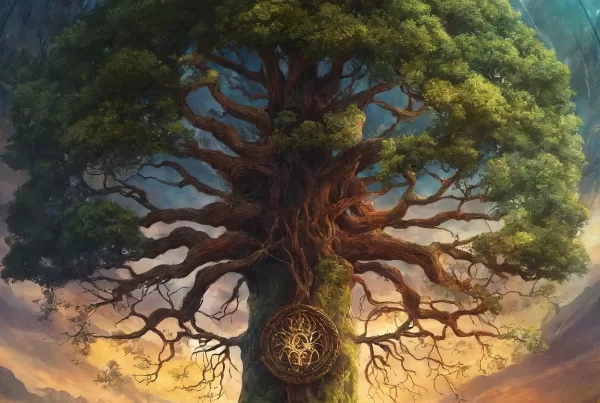
Excellent piece once again from Henrik. He really is an outstanding writer. I look forward to part 3, and I really hope there is a book in the works.